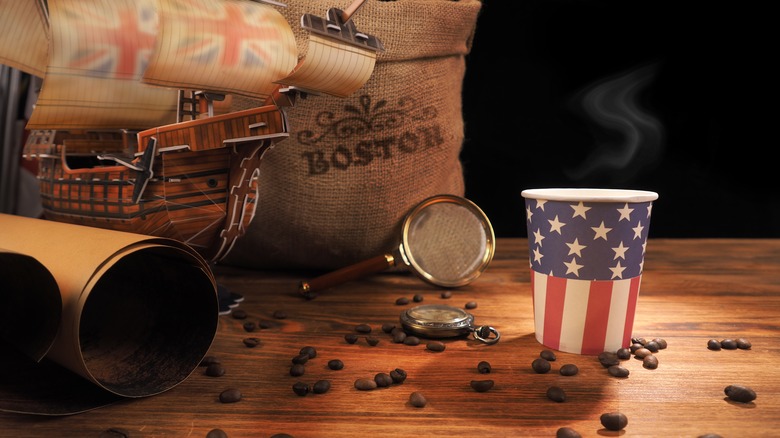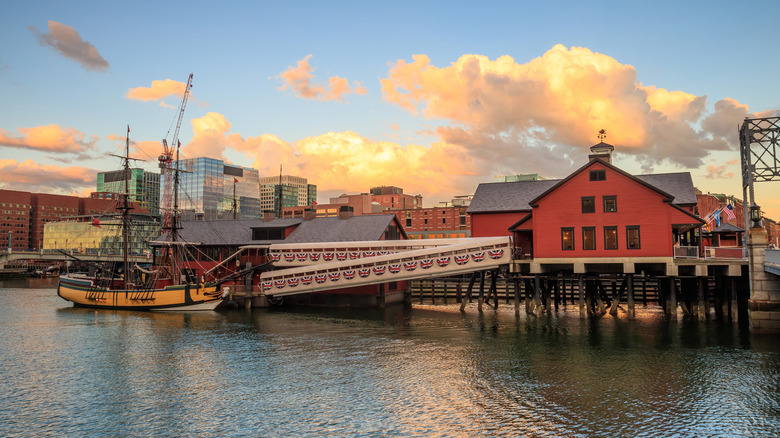How The Boston Tea Party Helped Popularize Coffee In The US
Cult classic "Twin Peaks" director David Lynch famously preached, "Even bad coffee is better than no coffee at all." Black Flag punk pioneer Henry Rollins testified that the best accouterment to a cup of coffee is "another cup" per Goodhouskeeping, and Otis Redding's "Cigarettes and Coffee" is as much an R&B standard as it is an anthem — and for good reason.
Americans love coffee. It's the gasoline of rock 'n' roll.
Over 60% of New Yorkers are coffee drinkers and, of these, 60% down more than one cup every day, reports WGRZ. It makes sense, then, that in Manhattan alone –- an island of less than 23 square miles -– there are currently 240 Starbucks locations, according to Food News.
How did such a massive coffee craze get started? It all started, fittingly, with a bang -– and a revolt against tea.
On December 16, 1773, American colonists dumped 342 crates of imported British tea into the Boston Harbor to protest "taxation without representation," via History. Not only was the Boston Tea Party an emblazoned act of defiant political outrage it also instigated the American Revolutionary War. What could be more punk than that?
It's your civic duty to grab a cup of joe
Although no one knows for sure when coffee originated (its roots have been traced to Ethiopia, via Britannica), coffee reached Europe in the 17th century — and was met with suspicion. Venetian clergymen condemned it upon its arrival in Italy in 1615, reports the National Coffee Association, calling it the "bitter invention of Satan" (Incredibly rock 'n' roll). It wasn't until the mid-17th century that coffee finally reached the New World, accompanying British colonizers as they dropped anchor (ironic, huh?)
Fast forward to 1773: Parliament passed the Tea Act, which gave the British East India Tea Company full control over the tea trade and subsequent taxation in the colonies. Considering American colonists were consuming nearly 1.2 million pounds of tea annually, via Tea and Coffee, this was a massive blow. The Tea Tax, it says, was intended to get the British East India Company out of debt, but instead, it created a ring of tea smuggling and, eventually, one of the largest wars to hit the 18th-century world.
Today, it's pretty unlikely that the American motivation for mass coffee consumption is quite as political. Coffee exports from Brazil have been cheaper and more accessible than Chinese or Indian tea exports, according to All Things Liberty. But, drinking coffee started as a political statement, reports Battlefields. The beverage gained popularity as more people began boycotting tea leading up to the Boston Tea Party. Every cozy cuppa in the morning was a tiny protest.

